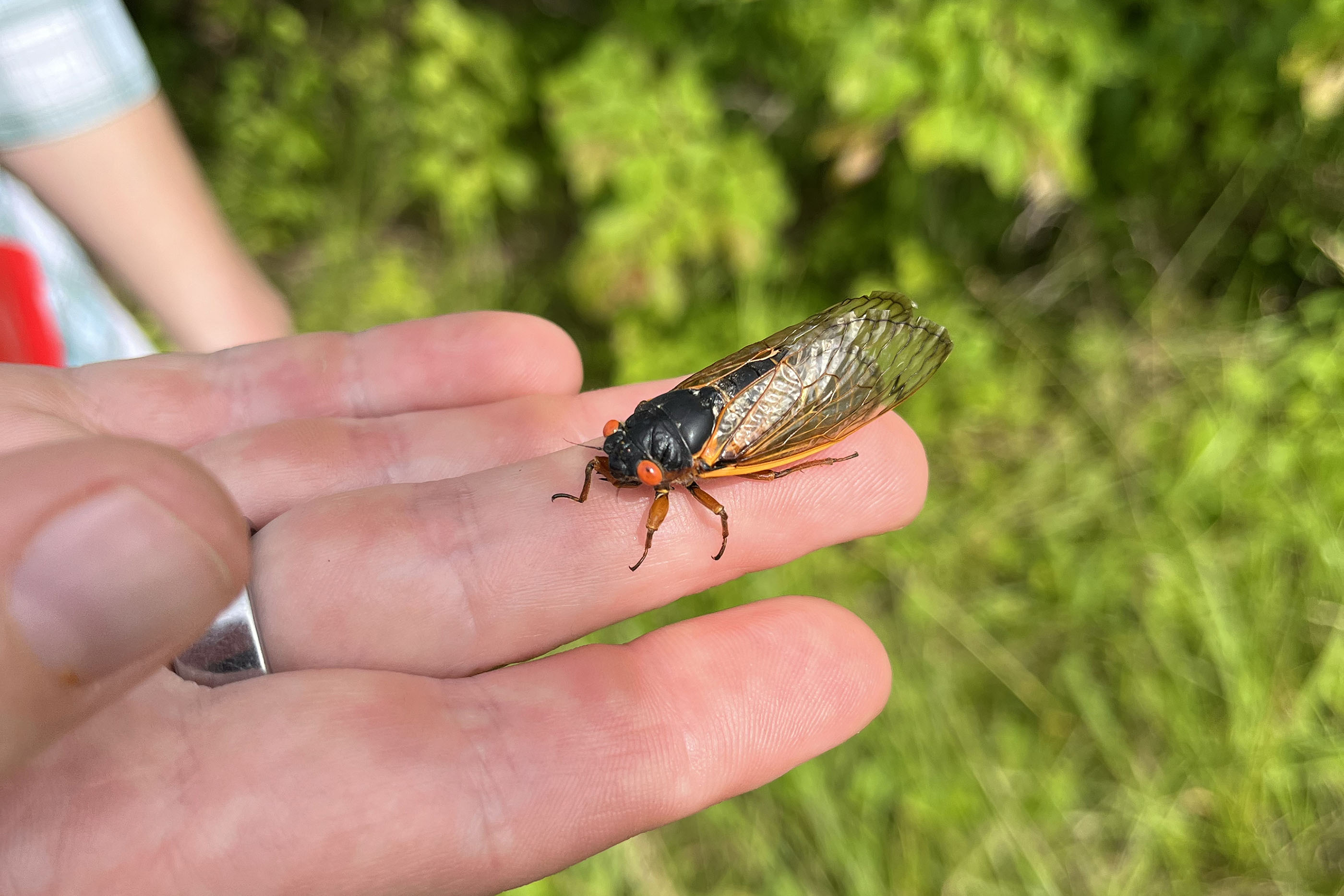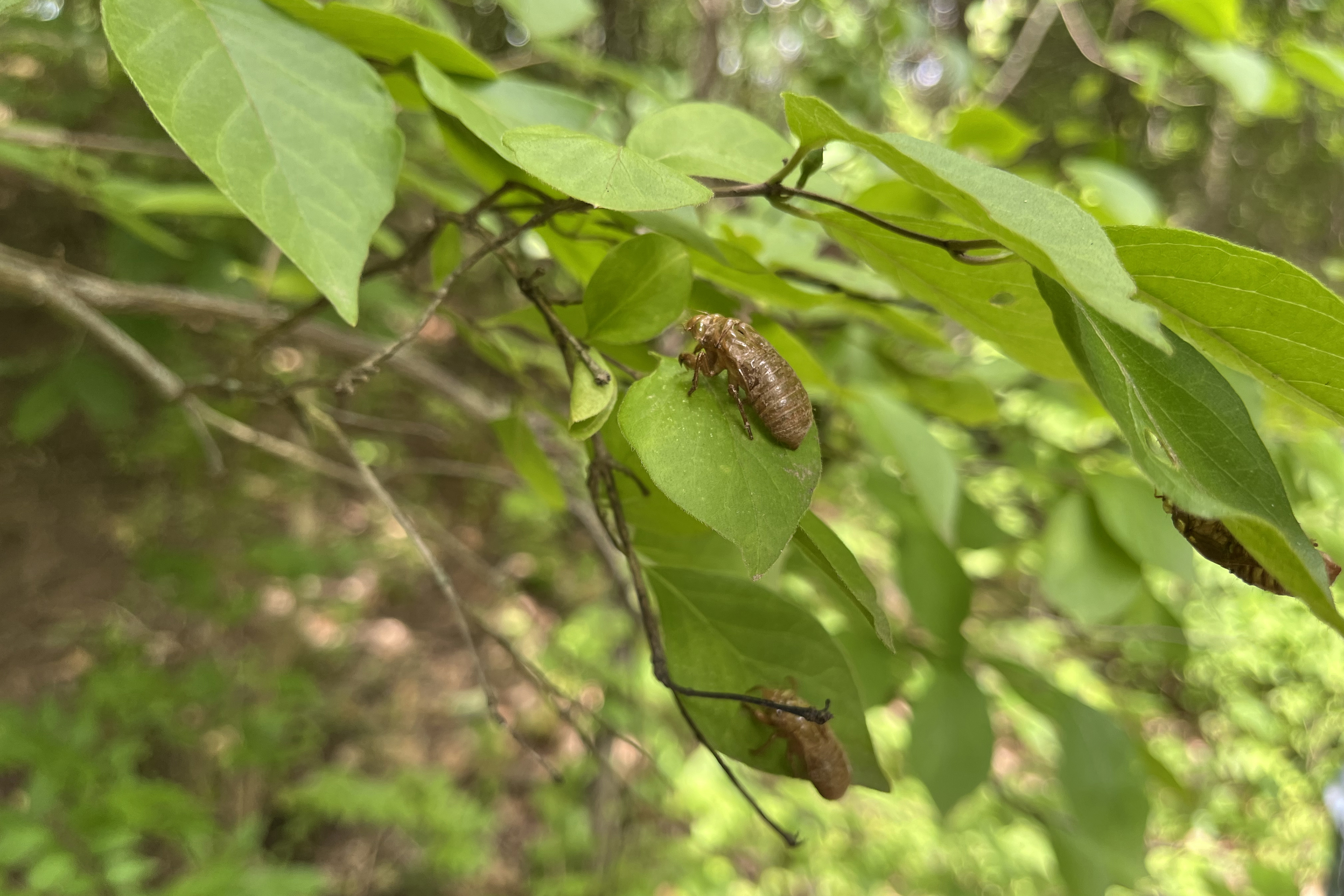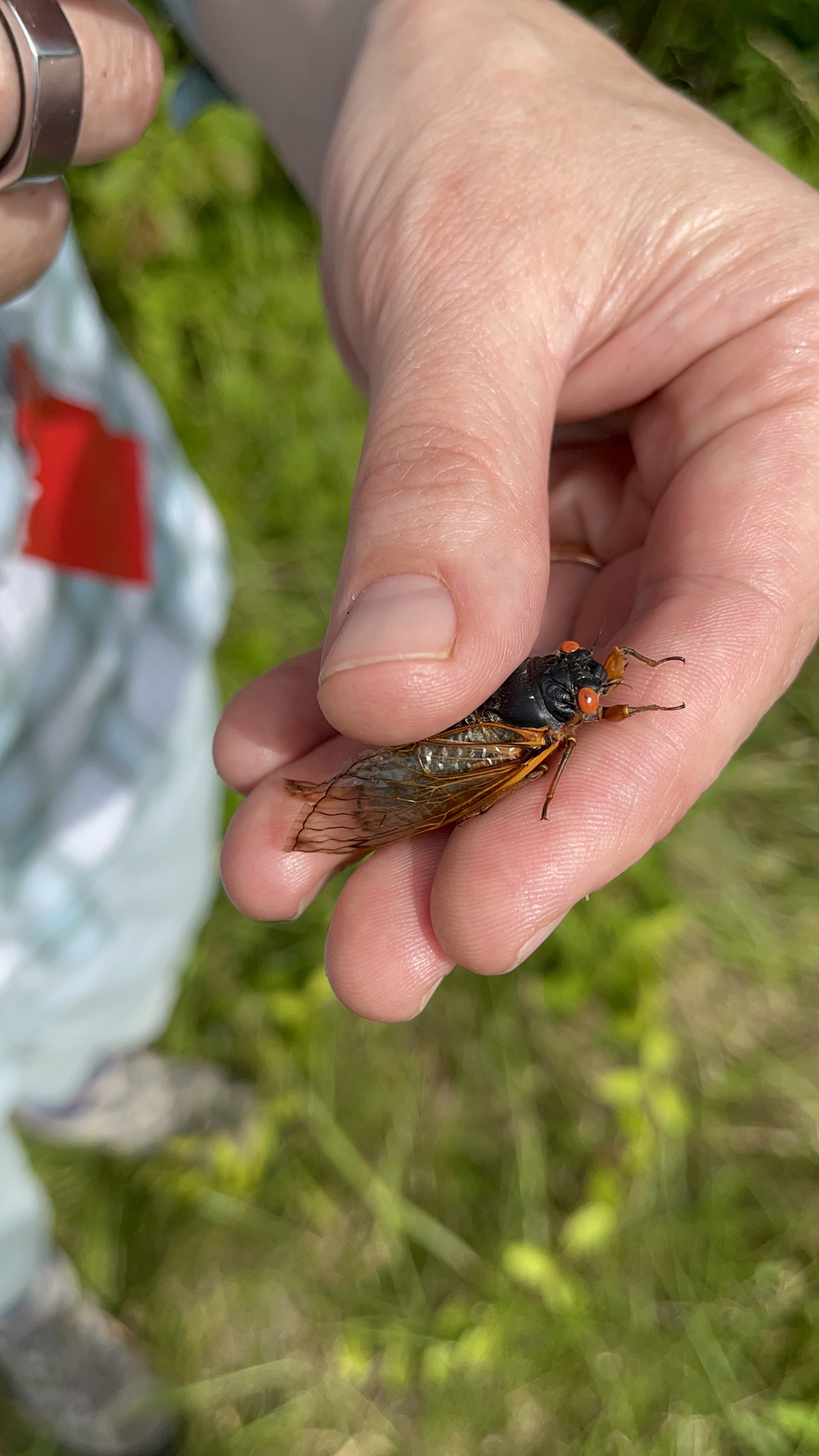Chorus or cacophony? Some ears are more touched by the song of the cicadas than others

LOUIS- Pssssst. Meow-me. Girl, girl, girl. This is the sound of three different species of cicadas. For some people, these sounds are the song of summer. Others wish the insects would be quieter. The cacophony can be particularly irritating for people with autism spectrum disorder and hearing sensitivity.
Warren Rickly, 14, lives in a suburb in south St. Louis County, Missouri. Warren, who is autistic, was recently waiting for his younger brother at the bus stop when the sound of the cicadas became unbearable.
“He said it sounds like there’s always a train going by next to him,” said his mother, Jamie Reed.
Warren told her the noise hurt.
Since this spring, trillions of the red-eyed insects have been crawling out of the ground across the Midwest and Southeast. It’s part of a rare simultaneous emergence of two broods – one every 13 years, the other every 17.
The noisy insects can cause stress. People with autism can be sensitive to textures, brightness and noise.
“I think the difference in people with autism is the intensity or how disturbing some of these sensory differences are,” says Rachel Follmer, a developmental and behavioral pediatrician at Lurie Children’s Hospital in Chicago.
“It can become so extreme that it causes physical discomfort,” she said.
When a large group of cicadas starts singing, the chorus can be as loud as a motorcycle. Researchers at the University of Missouri-St. Louis used crowdsourcing this year to determine that cicadas’ noise levels can reach up to 86 decibels, about as loud as a blender.
That can be tiring, but unmelodic, said Follmer.
To help children cope, she suggests giving them an introduction before they enter a noisy situation. For cicadas, that might mean explaining what they are, that they don’t bite or sting, and that they’re only here for a short time.
“When something is uncomfortable, it can be very frightening for many people to not have power in that situation, regardless of whether they are autistic or not,” Follmer said.

Jamie Reed’s family uses these and other strategies to help their son. Warren wears noise-canceling headphones, listens to music and has been teaching himself about cicadas.
“I think it grounds him a little bit when he researches it and investigates it,” Reed said.
Fatima Husain, a professor and neuroscientist at the University of Illinois Urbana-Champaign who studies how the brain processes sound, said people with tinnitus may also struggle with the sound of cicadas.
Tinnitus, a ringing or other noise in the ears, is a person’s perception of sounds without an external source.
“Some people say it sounds like a humming noise, like wind blowing through the trees, and ironically quite a lot of people say it sounds like cicadas,” Husain said.
For most people with tinnitus, Husain said, cicada chirping is harmless background noise, but for others, the ringing can interfere with casual conversation or sleep. People with tinnitus are also more likely to experience anxiety or depression. A loud, persistent noise, such as the singing of cicadas, can worsen a person’s tinnitus, Husain said.
But that doesn’t always have to be a bad thing. The song of the cicada can also be a relief.

For some, tinnitus gets worse in quiet environments. Husain said she’s seen reports this year from patients who said the sound of cicadas is like soothing white noise.
“The sound is so loud that it somehow drowns out her internal tinnitus,” Husain said.
As loud as cicadas can be, they don’t necessarily damage hearing, according to the Centers for Disease Control and Prevention. Hearing loss builds over time from repeated exposure to loud noises. Cicadas aren’t loud enough for long enough to cause permanent damage, Husain said.
Everyday noise sources pose a higher risk. According to Husain, constant noise pollution from highways, airports, industrial plants or household appliances such as blenders and hairdryers can be a problem. And they can have a negative impact on emotional well-being.
“Being exposed to very loud noises during any part of your school or work day can lead to even greater stress and anger,” she said.
Unlike on highways or airports, cicadas won’t be around for long. Most of the current brood will be gone in the next few weeks. Just in time for another loud summer event: the Fourth of July.



:max_bytes(150000):strip_icc():focal(710x212:712x214)/tyla-BET-awards-performance-063024-1bbe38dac8204a0fb1e976a3f9cb61ab.jpg)